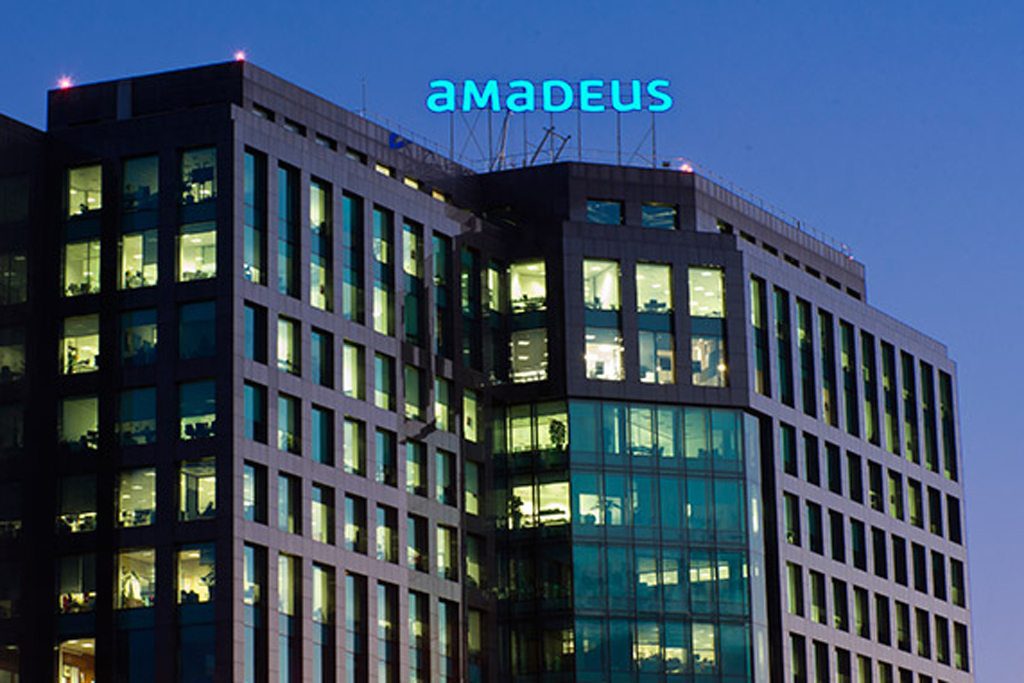Skift Take
Amadeus continued to have strong financial performance in the first half of the year. Trends point to it continuing to be a juggernaut of travel distribution in the near-future.
Investors in travel technology group Amadeus have had a smooth flight. Since the business, which generates a majority of revenue in distributing airfares to travel agencies, went public in 2010, its shares have more than quadrupled in value.
On Friday, Amadeus reported its first-half 2017 financial results. The company has continued to pull off revenue and profit growth despite headwinds in European and Middle Eastern travel due to geopolitical events, such as terrorism, an in-flight laptop ban, a political dispute involving Qatar and its neighbors, and Brexit’s impact on British outbound tourism.
The travel technology company has pulled off that feat because its flat fees are not linked to airline profitability or airfare changes, although demand impacts revenue. Amadeus’ fee for bookings (per passenger boarded or a similar metric depending on the contract), remains constant, typically, whether a ticket is $1,000 or $900. The fee averages 2 percent of a ticket’s value.
Despite depending on the number bookings, which fluctuate, the group has grown its revenue almost every year since 2010.
Recently there has been much industry talk about airlines and hotels trying to get customers to book with their branded websites and apps directly, bypassing the middlemen vendors like Amadeus. But Amadeus has consistently offset this risk through geographical expansion.
Once again, Amadeus’ share of travel agency air bookings grew a half percentage point, to 43.6 percent, with the fastest growth coming in Latin America and Asia-Pacific in the first half of 2017 compared with the same period a year earlier. In comparison, in 2012, its share of travel agency air bookings worldwide was 39 percent.
During a Friday call, analysts for investment banks quizzed group executives about how they would respond to its largest rival Sabre apparently offering higher incentive payments to travel agencies in a bid to take market share. (Its other competitors are Travelport and TravelSky.)
Chief financial officer Ana de Pro admitted that the behavior of this competitor, which she didn’t name, was “irrational.” Yet she said Amadeus’s policy was to keep a floor on the value of incentives it gives to agencies for using its global distribution system to book tickets.
In other words, the company is willing to lose some agencies who are tempted to go to competitors offering more generous kickbacks because it believes it can maintain market share through other means, such as by doing a better job at helping agencies boost revenue, de Pro claimed.
Amadeus has a second arm, providing IT services to airlines. This business is a higher margin one than distribution and relies on revenues that are dependent on the number of passengers boarded through the platform. Revenue in this division spiked 13 percent to $1 billion (855 million euro) in the first half of 2017, compared to a year earlier.
Executives say this growth should continue, partly on the strength of the move in May to migrate Southwest Airlines onto its reservation system. Southwest is the largest U.S. carrier in terms of originating domestic passengers boarded.
Putting the two biggest money-making divisions together, group profits before tax rose 16 percent to $674 million (574 million euro) during the first half of 2017, compared to the same period a year earlier, based on revenue growth of 9.5 percent to $2,929 billion (2,490.7 million euro).
Amadeus also has a hospitality division that provides IT services to hotels. Its largest story on that front is expected to unfold in the last months of the year, when InterContinental Hotels Group (IHG) begins a long migration onto a new central reservation system.
If the migration goes well, Amadeus hopes to have IHG use Amadeus’ revamped property management system, too, according to Amadeus CEO Luis Maroto on Wednesday’s call. IHG is the biggest hotel group to join the Amadeus hospitality system yet. (For more on the company’s strategy overall, read Skift’s recent interview with Amadeus CEO Luis Maroto.)
Executives gave no update on the progress of the IHG migration other than to say things are moving along on the promised timetable. IHG executives are likely to give an update in early autumn. Amadeus hopes to use IHG as a reference customer to woo other major hotel groups to sign up for its IT services.
As for investors, after the solid winning streak, Amadeus shares on 26 times forward earnings aren’t cheap anymore. Most investment banks still have “buy” ratings on the stock, suggesting confidence in the company’s management and business model.
The Daily Newsletter
Our daily coverage of the global travel industry. Written by editors and analysts from across Skift’s brands.
Have a confidential tip for Skift? Get in touch
Photo credit: A stylized representation of Amadeus's global headquarters in Madrid, where the company is a darling of the stock market due to its long streak of producing fat earnings. Amadeus
